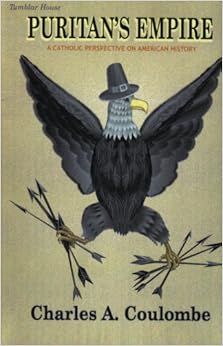
It is not easy to say exactly what this fascinating, powerful, rich and heartfelt epic panorama of a book is. For it is many different things at once. It is subtitled: “A Catholic Perspective on American History”. And indeed it is, recounting the story of America from Columbus on – but from a very different perspective than most of us are accustomed to.
And it is an account that the dustjacket describes as “the culmination of over 30 years research and thought on the real meaning of American history today” undertaken by the American author Charles A. Coulombe.
The results show. There is a LOT here.
But the wealth on offer is not simply American history. For there are frequent excursions into rather different territory – including though not limited to: sideways glances at parallel history elsewhere, particularly that of Latin America; probing analysis of America´s cultural and literary achievements; American Catholic folklore; and not least, the author´s staunch, uncompromising and traditional Catholic – and Monarchist – views.
Along the way then, we get glimpses into countless American minds and influences, from Presidents such as Washington, Jefferson, Lincoln and Wilson; to literary figures like Emerson, Poe, Hawthorn; to the impact of the inventors Edison, Bell and the brothers Wright to that of the tycoons and “Robber Barons” Vanderbilt, Carnegie and Rockefeller; to Puritanism, Unitarianism, Transcendentalism and more. More upon more.
And through it all, the author points us to buried and occluded elements of a dark undercurrent of American history. Some will no doubt write the author off as just another conspiracy nut.
Personally, I find Coulombe’s self-evident acuity and credentials too impressive to dismiss. His thirty years of work has integrity and depth. And his unusual presentation points to something gravely important for those seriously trying to understand the rise of the modern world.
If we cannot say what this book is, perhaps we might begin with what the book is not. Clearly, it is no ordinary account of American history. Among other things, it is a history with an ethical, religious and tragic tone. American history is presented here as frequently immoral, with opprobrious consequences.
It is easy indeed for me to imagine that if this book were to find its way into certain hands, it would be decreed fit for burning. Make no mistake: this book is radical. Some would call it propaganda.
To this charge, I imagine its author would reply that it is the ordinary books of American history presented to the young which amount to propaganda. And he is trying to redress an imbalance. What can I say? Coulombe is actually honest and explicit about what is trying to do here – to provide Catholic Americans with an alternative history.
And it is apparent to me at least, that many of the secular books on history are less honest.
For example, I have recently read The Story of Spain by Mark R. Williams. This American author was clearly portraying Spanish history through an anti-Catholic, liberal lens that considered Spain’s historical problems as largely due to the fact that it had not been more like America! And in analysing modern Spain, it was as though I could hear the author just dying for Spain to get with the globalising American beat: “Get with the American beat, you stupid, backward European Catholic country.”
At least, I could scarcely help but hear such a refrain under Williams´remarks, albeit in a somewhat covert way.
There is nothing covert about Coulombe! He is transparently an uncompromising Catholic traditionalist, drawing out the consequences of that position. Among those consequences is the recognition that Americans have by and large been conditioned by an ideology hostile to the doctrines of Catholicism—which moreover is embedded in a powerful ideological version of their history, spoon-fed to the young in what Americans call their public schools (State schools in the British Isles).
Such explicit honesty negates the notion of propaganda. Propaganda is manipulative. Its authors do not come and tell you straight out, “Well, this is our perspective.” With Coulombe’s staunch Catholicism, one certainly has no doubt “where he´s coming from”!
Now, I want to do something a little unusual for a review and bring my own personal background to the foreground. I am reading Puritan´s Empire, largely if not entirely, educated myself in the very American public school system which Coulombe critiques.
And my own memories of that public school system accord well with Coulombe´s charge. At least, I recall an education whereby the architects of the American Revolution were presented as nothing but heroes. And to the best of my memory, the tenor of my education was not: “Well this is just one perspective among others.” No, I do not believe that I heard perspectives like this:
The Royal Government in America was in 1770 considered no more foreign than the Federal government in California today. Any who plotted to overthrow the American constitution, flag and so on would be considered traitors. Those who break their oaths to the constitution would be considered perjurers. So it was in 1770. This is one point to keep in mind; each of the rebels who had held public office, like Franklin, Jefferson, George Washington and Patrick Henry had to break their oaths to the King. Such oaths of allegiance meant as much or more then as they do to us today.
Couloumbe goes on to detail the strife that emerged between the minorities of the revolutionaries and the loyalists – pointing out a much greater middle ground of folk who were not bothered much either way and simply wanted the greatest security from either possible government. Much like people today.
We all know what happens – the revolutionaries carried the day and the loyalists who wanted to remain British lost. In many cases, they were driven into Canada, which remains loyal to the Crown to this day. And Coulombe´s book is richly suggestive of why such a different mentality developed in Canada, as opposed to the States …
But no, none of this I recall as evident in the history I was taught as a child. Looking back at my own childhood, I confess I see ideological indoctrination …
I also recall a requirement to undertake something plain bizarre by European standards. That is, I recall the requirement for children to stand every morning in salute of the flag: “I pledge allegiance to the flag of the United States of America, and to the republic for which it stands, one nation under God, indivisible, with liberty and justice for all.”
Yes, it needs to be said that I am reviewing Puritan´s Empire with personal experience very much in accord with Coulombe´s thrust: that America is a site of a powerful ideology developing over centuries, and an ideology hostile to the Church and European tradition – although a hostility which has often been masked, as Coulombe points out, in the “soft” covert format of the iron hand in a velvet glove.
But in speaking of the Founding Fathers, we are getting ahead of ourselves. For Coulombe´s epic narrative goes back generations before the Founding Fathers revolting in 1776 …
It goes back to the Puritanism of the Pilgrim Fathers who famously arrived in the Mayflower in 1620. And indeed it goes back still further.
But first, what is Puritanism? It is an extreme form of Calvinist Protestantism which, as Coulombe makes clear, contained the most anti-Catholic of all who called themselves Christian. These included the Pilgrim Fathers who originally left England for America, because they found English Protestantism too Catholic. They left the England of King James because the religion of the Protestant King James I was judged excessively Catholic!
And so the United States emerged from a Calvinist matrix, whose ethos was not only very different from the traditional Catholic and Monarchist ethos of old Europe, it was very different from the original settlers in America.
Thus Coulombe gives particular attention to the fact that, before the Anglophone culture forged by the Puritans arriving on the Mayflower, there were already previous decades of a French and Spanish Catholic America in the South and in the West – whose cultures by fair means and foul, the English speaking matrix of the Northeast colonies would systematically work to overcome.
And he goes to considerable length to evoke the forgotten memory of the rich Catholic America that existed before the Puritans, in places like St Augustine Florida, founded in 1565 and Santa Fe in 1607. And continued to develop alongside the Puritans in New Orleans and St Louis and San Francisco …
And in contrast with this rich evocation, much emerges about the Founding Fathers. For example Thomas Jefferson is normally associated as a pioneer of American democracy. But in his acquisition of Francophone Catholic New Orleans, Coulombe portrays another side of the third President:
Jefferson and his cronies had little but contempt for the [French-speakers] (as the President´s hatred for their religion would make obvious). Although the treaty of cession obliged the Americans to give the same rights as their new fellow citizens, Jefferson opined that they were “as yet as incapable of self-government as children.
As a result in March of 1804 the … Territory of Orleans … was denied any sort of self-government … So a people of immense culture were deprived of any political voice, while the hordes of illiterate frontiersmen who soon poured in, had the rights of citizens. Apparently Jefferson had forgotten the words he had written so long before in the Declaration, about the “just consent of the governed.”
Do we wish to acquire to our confederacy any one or more of the Spanish provinces? I candidly confess that I ever have ever looked on Cuba as the most interesting addition which could ever be made to our system of states. The control which, with Florida point, this island would give us over the gulf of Mexico and the countries and the isthmus bordering on it, as well as those whose waters flow into it, would fill up the measure of our political well being.
All these are but brief glimpses into a picture Coulombe meticulously builds up, one in which the descendents of the English colonists of the Northeast in particular, come to dominate the whole of what is now the United States …
But this is not simply a picture of political conquest, but of religious and cultural conquest as well.
For at the heart of this saga is a depiction of an America based on a very definite kind of conquering religious and cultural matrix which mutates over the centuries, but still has discernible roots in Calvinist Puritanism.
As to these roots, I think it well to turn now to Coulombe at length:
In 1620 the Pilgrims landed at Plymouth Rock in Massachusetts … this was in many ways the birth of the United States as we know them. The pilgrim fathers are stock-pieces of our national folklore. We celebrate in emulation of them Thanksgiving day; our proudest families claim descent from them ….
Because of their belief in predestination, and further that predestination to Heaven could be seen by material blessings given by God to his elect … they set great store by wealth.
Material success was a sure sign of moral superiority; so everything that contributed to this, thrift, industriousness and so on, became not merely a means to an end, but religious duty. Similarly those who were poor or enjoyed pleasures other than those of labor were considered damned.
Added to this was their hatred of much of the arts; initially because they considered them idolatrous (had they not resulted in Catholic statues and icons?) but finally because they did not conduce themselves to wealth.
To be fair, the Puritans did try to give their tools and implements a certain sparse beauty, but these were legitimate only because they were first and foremost tools, rather than mere ornaments. If a thing or action was pleasant or pleasurable on its own, it was suspect unless also profitable.
Further identifying themselves with the children of Israel in the Old Testament, they considered all those whom they encountered, Indians, French, Spanish and even non-puritan English – to be the equivalent of the Canaanites and so to be treated the same way, without mercy.
Lacking confession, personal sin was elevated from a question for the penitent and his confessor into a matter for the whole community … Malicious gossip … became thereby a civic duty…
In much diluted form, these basic attitudes remain very much alive today in this country.
The Puritans, then, believed they had a pure form of Christianity stripped of Catholic accretions – including for example Christmas. In the course of the book, the author will suggest how this stripped-down “purified” take on Christianity will naturally slide into innovations even further removed from Catholicism, including New England Unitarianism and Deism, which become subtly powerful currents shaping history out of all proportion to their actual adherents.
Thus in speaking of the Founding Fathers Coulombe remarks that after the Revolution:
The local oligarchy in each state … tended to be … less interested in spreading the doctrines of the American Revolution around the world than in making a profit at home. But for the more ideologically motivated among them this was not enough. Massachusetts was too small for John Adams, Pennsylvania for Franklin, Virginia for Madison and so on.
For such as these it was not enough to have a little string of colonies hugging the Atlantic coast: they wished to lay the foundations of a great commonwealth which, dedicated to the principles of the Enlightenment and Freemasonry, would serve as model for and steppingstone to a world state based on the same ideals. For such as these, the American was to be a new kind of man.
Like their Puritan predecessors, who had wished to sever all connection to old Europe and to the revealed religion which had formed her…
It would be a country … based not upon any sort of Christianity, but upon the ideals of the Enlightenment.
The idea of Masonic inspiration for the United states is hardly novel. It is common knowledge that many of the leading revolutionaries were Masons. And any American knows that the reverse of their most basic unit of currency, the one dollar bill, displays the Great Seal of the United States of America with its Masonic imagery and inscription: Novus Ordo Seclorum … a New Order of the Ages.
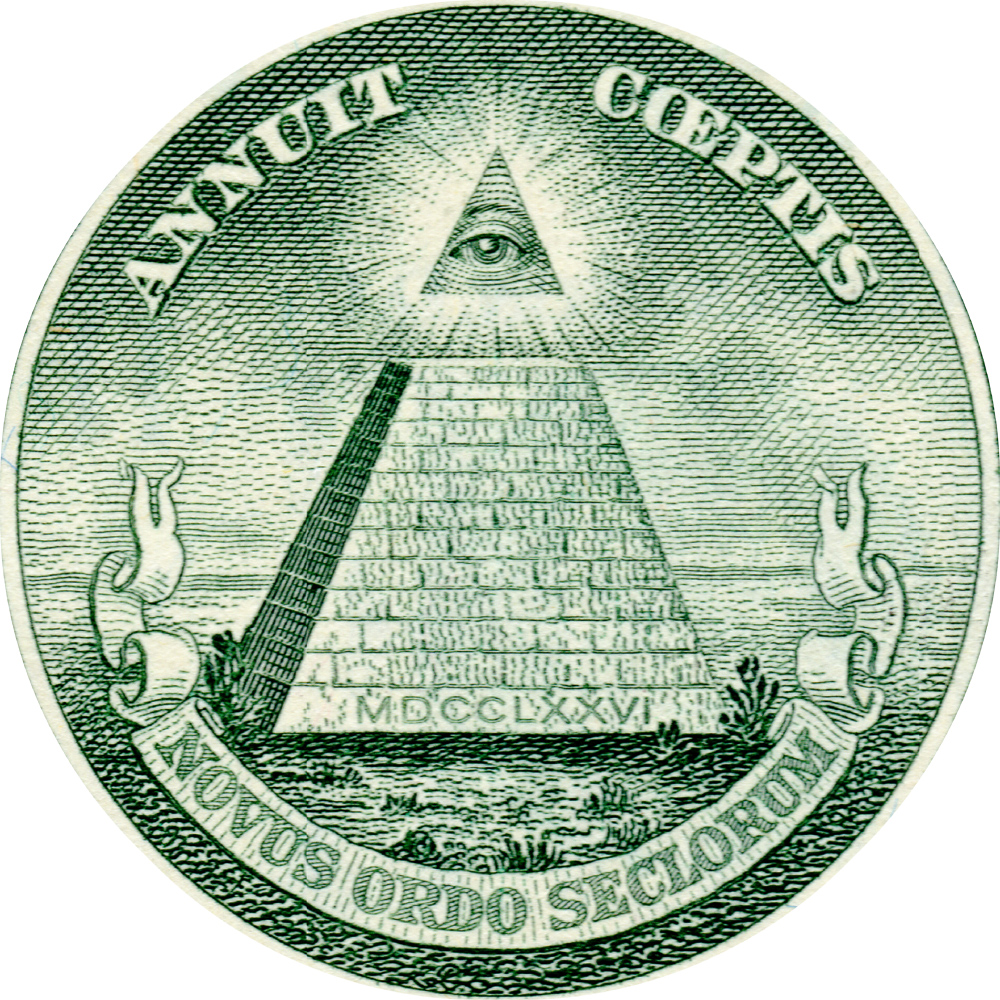
Language which is indeed redolent of mighty, nay, colossal ambition.
Yet Coulombe takes us much further in his book concerning the religious and ideological views of the Founding Fathers. Thus Franklin is quoted:
I believe in one God, Creator of the Universe … As to Jesus of Nazareth, my Opinion of whom you particularly desire, I think the System of Morals and his Religion, as he left them to us, the best the world ever saw or is likely to see; but I apprehend it has received various corrupt changes, and I have, with most of the present Dissenters in England, some Doubts as to his divinity … I see no harm however in its being believed, if that Belief has the good Consequence as probably it has, of making his Doctrines more respected and better observed.
To all of which, Coulombe rightly adds:
This is a classic statement of Deism. The God of whom Franklin writes is not the Christian God, Whose Second Person incarnates of a Virgin and remains in Church and Sacraments. Rather he is the Muslim Allah or Masonic Grand Architect, essentially aloof from his creation. Revealed Christianity is spurious, but serves a useful social function …
Where Franklin, however saw in Christianity merely a harmless perhaps even socially useful lie, Jefferson saw a definite evil.
Coulombe delves into Jefferson´s correspondence to establish an orientation both completely at variance with orthodox Christianity: “I trust that there is not a young man now living in the United States who will not die a Unitarian” and decidedly and bloatedly hostile to Catholicism: “There would have never been an infidel, if there had never been a priest.”
The correspondence of the second President Adams with Jefferson only serves to underscore the point:
Platonic, Pythagoric, Hindoo and cabalistical Christianity which is Catholic Christianity and which has prevailed for fifteen hundred years, has received a mortal wound, of which the monster must finally die.
Such sentiments—of Masonic pedigree—Coulombe maintains:
required for their practical execution the creation of a distinct American character made-to-order rather than organically developed over long centuries influenced by the Faith, as happened in Europe. There must be in many ways as possible, a radical divorce from both the mother country and the rest of Old Europe.
Foremost in the pursuance of this goal was Noah Webster, famous as the creator of Webster´s Dictionary of the American Language. The very name of the book tells us something about his intentions in altering the spellng of such words as honour, centre and recognise to honor, center and recognize.
This change he called a “reform.” In a 1789 essay he justified it on several grounds, but the one which most concerned him was simply that it “would make a difference between the English orthography and the American … I am confident that such an event is an object of vast political consequence. [Emphasis mine – RB]” What was his goal?
“… a national language is a band of national union. Every engine should be employed to render the people of this country national; to call their attachments home to their own country; and to inspire them with the pride of national character. However, they may boast of Independence, and the freedom of their government, yet their opinions are not sufficiently independent; an astonishing respect for the arts and literature of their parent country, and a blind imitation of its manners, are still prevalent among the Americans.”
Webster´s efforts in this area soon received official commendation … Here he realized a fact grasped by later revolutionaries: if all traces of the old regime are to be blotted out, the language and its manner of writing must themselves be changed. So Kemal Ataturk ordered Turkish to be written in Latin rather than Arabic letters; the Soviets “reformed” the Russian alphabet; and Mao had the Chinese characters “simplified” … It was an extension of this principle which led George Orwell to his horrific vision of “Newspeak” in 1984.
But Webster and his kind were not merely concerned with how things were spelled. They were also concerned with rejecting the inheritance of Christendom in education. In another essay, written in 1790, Webster argued for the banishing of classical and British literature from classrooms and their replacement with something else:
´Another defect in our schools, which, since the revolution, is become inexcuseable, is the want of proper books. The collections which are now used consist of essays that respect foreign and ancient nations. The minds of youth are perpetually led to the history of Greece and Rome or to Great Britain; boys are constantly repeating the declamations of Demosthenes and Cicero, or debates upon some political question in the British Parliment. …
But every child in America should be acquainted with his own country. He should read books that furnish him with ideas that will be useful to him in life and practice. As soon as he opens his lips, he should rehearse the history of his own country; he should lisp the praise of liberty, and of those illustrious heroes and statesmen, who have wrought a revolution in her favor.”
Later Webster´s impulses, will be developed along complementary lines by the likes of Horace Mann, John Dewey and other developers of the American public school system, creating a powerful assimilationist force for the waves of immigrants. Or so the author argues—convincingly I think.
Thus does Coulombe build up a picture of a manufactured American character rooted in Calvinist soil, hostile to European tradition and Catholicism in particular, and inculcated in what Coulombe calls – quite rightly I believe – “nation-worship” …
“As soon as he opens his lips” to quote Webster again. Lisping praise …
How much I recall this nation-worship in my American youth! And how many Americans I have met who seem surprised and disturbed that I would voluntarily live my life in Europe! How, how could I ever prefer Europe to this great nation? Their expression has sometimes been pained. As though I have insulted something sacred, simply by preferring Europe and Catholic Europe most of all. As if there were no other valid option in the world to Americanism …
There is a very sobering picture in this book, which I believe the author has done an important service in bringing from the dark and buried currents of history to the surface.
Here are poignant and painful things, when one stops to contemplate and feel them. And if one cares to think as well as feel, this book will open out disturbing questions. What is the nature of mass movements like the Puritanism and its descendants? To what do they ultimately owe their origins? To what extent does their propagation necessitate social engineering and ideological indoctrination? What exactly constitutes suchindoctrination, anyway? And what should be done to resist and limit it?
None of this is to say the book is flawless and personally I find the author excessive on occasion. What can I say? The author clearly knows American history far better than most of us. And at times what he sees makes him angry. At times, there is an irony and sarcasm in this book that – although funny – I think regrettable. I think his moral case would be stronger without them.
But I stress ‘at times’, because these are minor spots on a powerful and impressive tapestry. For this is decidely not a ranting and hysterical book. And if I have highlighted passages of a damning quality, there is much also pointing to a wistful beauty.
Indeed, rather than ranting, the author seems to me possessed of real warmth, deep affection, rich humanness and feeling. He also strikes me as an author who is weeping, for he knows first-hand the life transforming power of the Sacraments and feels acutely all that was lost, as an American population were in countless, countless ways worked upon so as to deprive them of the Sacraments …
Now in the space of this already very long and very personal review, I cannot do justice to all that Puritan´s Empire evokes in the course of its 600 pages.
And my little sketch here is highly tilted towards America´s origins. I have said so far little of the author´s moving portrait of America later on as she develops. There is a great deal of value then, in his evocation of twentieth century America. Just for example, Coulombe writes most perceptively of how technology changed America and the world at the turn of the century with the rise of electricity, telephony and the horseless carriage …
There is also a powerful evocation of America´s role in the first World War and the Woodrow Wilson Revolution of 1918, whereby the war against Catholic European tradition that had formally been confined to the Americas now extended to Europe herself, whereby the Wilson administration worked to remake Europe in her own American image …
And there are still further important threads woven into this tapestry. There is the story of Catholic immigration into the original English matrix, the story of the Germans, the Irish, the Italians and the Poles, who were to be assimilated. Then there are tales of Latin America and systematic attempts by the US government to thwart their cultures.
And there is also the tale of the indigenous Americans, as they are pushed back across the frontier, sequestered and killed. All of which is placed in poignant contrast to a more Catholic (i.e. universal) pattern elsewhere that fostered inclusion and intermarriage. Although of course, all forms of colonialism give rise to atrocities …
But again, I am writing a review and not a book. And so must pass over in silence much that I should like to highlight.
What to say as I draw to my close? It is a dictum that “History is written by the victors”. I find here a very remarkable effort to write history from the perspective of the losers.
A tragic sense engulfs me as I read this book. I am as I say, reviewing this book as an American – albeit born of British parents. Yet I too, am an American born in the once Spanish Catholic city of Los Angeles, conquered and taken by the Anglo Protestant power which came to dominate not only the continent, but the world.
Born in the city of the Angels, I am reading these words 46 long years later in Spain, concerning the treaty of America´s war on Mexico where California began the road to becoming Anglicised:
The U.S. would give Mexico 15 million dollars. The validity of the treaty, however, required three conditions: respect for the property of the local inhabitants; maintenance of their Spanish language, culture and customs; and freedom for Catholicism. These would be disregarded.
What can I say, if not again that I am an American born of the British, growing up in both America and England. One might observe then, that I might be something like the quintessential Anglo-American …
And that I am disturbed indeed by the conquering power of my own Anglo-American matrix. And I am disturbed as I look back on the United Kingdom in which I arrived as a teenager. For looking back three decades, it is clear that even England was far less “American” in those days.
Coming directly from America to England, the cultural differences were far more evident than back then. The shops were all shut on Sundays. The government restricted commercial television to one single channel. The universities were geared to education and not the marketplace. The atmosphere was far less commercialised and “cool” back then. And places like Catholic Ireland or even France would have been decidedly even less “cool”, jiving less to the global capitalist beat.
But this is a topic for another entry. My point here is that our world is being colonised by a matrix that can be called Anglo-American. As an Anglo-American myself, I need to declare that firmly. And I need to salute books like Coulombe’s which can do very, very much indeed to make us conscious of this matrix.
If you the reader happen to be a traditional Catholic Monarchist, you will no doubt find this book of real interest. But this is to limit Coulombe’s potential audience. For who is a traditional Catholic Monarchist these days? If you are not such, I feel like encouraging you to go, to go beyond your comfort zone perhaps, and read Coulombe.
You will not agree perhaps with everything here. And nor do I. But you may find surprising and disturbing insights into not only America, but the Americanisation of the world, important insights if you care about such things …
You may also find a great deal of evidence to suggest that our supposedly tolerant, secular culture is hardly the neutral field it so often purports to be, but is composed of a set of very non-tolerant values, which have been in a process of construction by ruling elites for centuries …
For in the end, Coulombe´s epic saga of America is not just for Americans. Or perhaps indeed it is – if only because we are all Americans now. Or at least, well on our way to becoming so …
Whatever the case, it is important to understand the culture that has come to dominate the world. The culture that even now as you read these words, dear Reader, is stealthily “Americanising” us all on countless fronts …
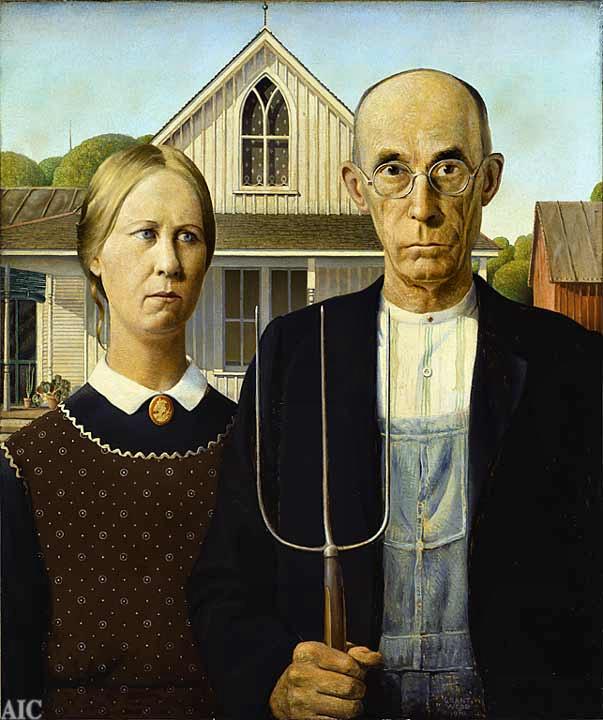
Buying Books at Amazon Through These Links Gives Us a Commission. This Supports Our Apostolate. Thank You if You Can Help Us Like This!

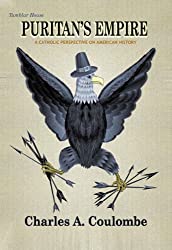
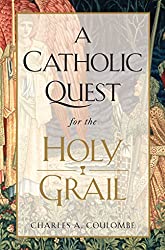
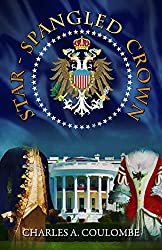
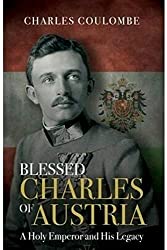
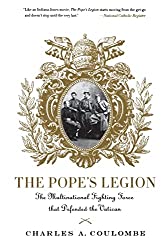
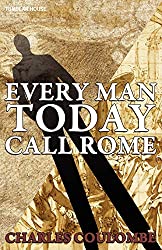
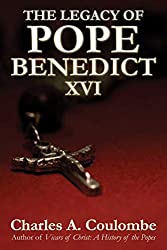
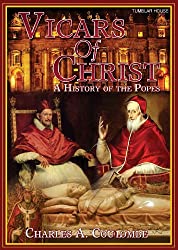
Comments
comments are currently closed
56 responses to “Puritan’s Empire by Charles A. Coulombe (Review)”
[…] to each Review here: (Heart of the Redeemer) (Meditations on the Tarot), (Puritan’s Empire), (Life of St Margaret Mary Alacoque), (This is the Faith), (Marian Apparitions), (The Secret of the […]
[…] will also refer the interested reader to Charles A. Coulombe’s Puritan’s Empire, which also goes into the Holy Alliance. There are indeed very striking parallels between Valentin […]
[…] to each Review here: (Heart of the Redeemer), (Meditations on the Tarot,) (Puritan’s Empire), (Life of St M.M.), (This is the Faith), Marian Apparitions, The Secret of the Rosary, France and […]
[…] of Europe and then America no longer had Sacramental Configuration. (Yes America too – for as Charles A. Coulombe masterfully makes clear in Puritan´s Empire, in even North America – from New Orleans to Santa Fe to San Francisco […]
[…] For me, then, this book is pure joy. Now, I have raved about this author in previous reviews – but I think this is possibly his finest book yet (although it is hard to beat his enormous epic Puritan’s Empire – which I reviewed here). […]